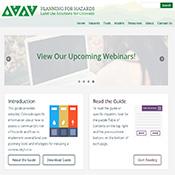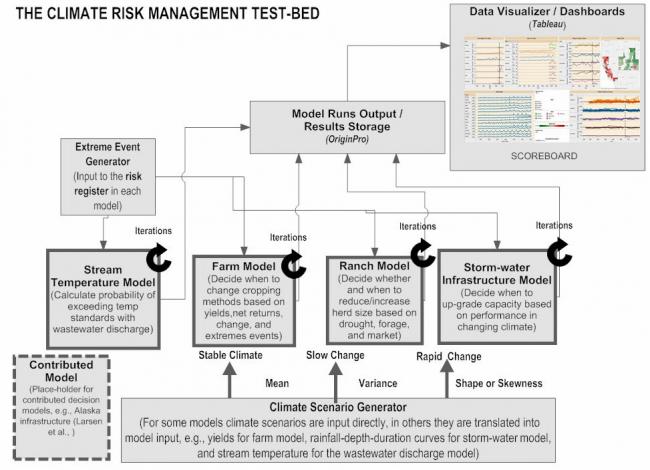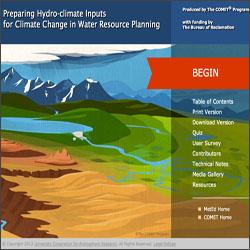WWA has helped to develop a number of online tools and training materials to support decision making related to climate risk in the Intermountain West. Below are the most recent of these decision support tools.
Planning for Hazards: Land Use Solutions for Colorado
A product from University of Colorado Denver and the Colorado Department of Local Affairs, “Planning for Hazards: Land Use Solutions for Colorado” enables counties and municipalities to prepare for and mitigate multiple hazards by integrating resilience and hazard mitigation principles into plans, codes, and standards related to land use and the built environment. This guide provides detailed, Colorado-specific information about how to assess a community’s risk level to hazards and how to implement numerous land use planning tools and strategies for reducing a community’s risk.
Climate Adaptation Decision Models
The climate adaptation decisions group works to understand the adaptation process and to build adaptation simulation models both as a research approach and as tools useful to decision makers. Risk and decision analysis is a mostly normative set of methods for making choices under uncertainty. We apply decision analysis as a research tool by giving more weight to studying the decision context and structure at the front end, and post-hoc, forensic decision analysis at the back end, to test theories and research hypotheses. Our approach aims to create realistic decision models that can be simulated under historical and projected conditions, subjected to extensive sensitivity analysis, and that can be used and revised by actual decision makers. We are developing a set of decision models aimed at understanding, and simulating, the decision process for response to climate variation among resource managers like farmers, ranchers, flood managers, and others.
Preparing Hydro-climate Inputs for Climate Change in Water Resource Planning
WWA collaborated with the US Bureau of Reclamation, the COMET program at UCAR, and others to help produce an online learning module entitled "Preparing Hydro-climate Inputs for Climate Change in Water Resource Planning." This module is part of a broader pilot effort aimed at helping guide analysts through the process of quantitatively assessing climate change impacts in water resource planning.
A free login is required to view the online module. Contact Eric Gordon for more information.


